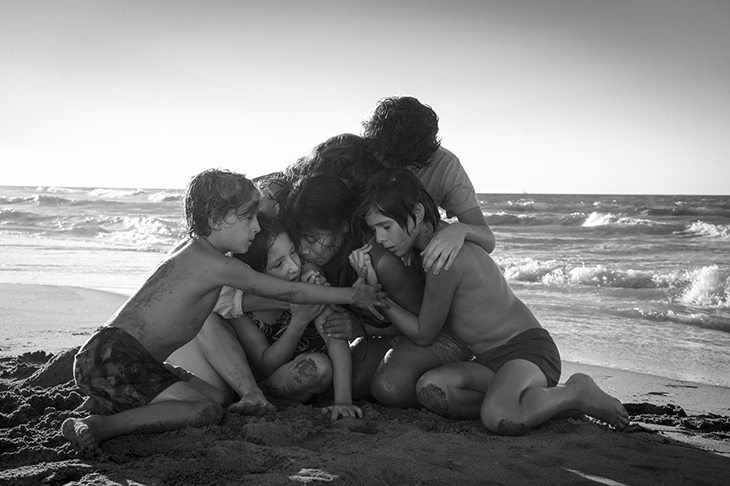Roma is the latest film from Alfonso Cuaron (Gravity,Y Tu Mama Tambien, Harry Potter and the Prisoner of Azkaban) and you’ll probably already have heard that it’s wonderful, a masterpiece, magnificent, Oscar-worthy. But as I know you won’t believe it until you hear it from me (sigh, the responsibility is too much sometimes) I can confirm all of the above.
At this point I should note that many cinephiles have complained that it deserves to be seen at the cinema, on a full-sized screen with full-sized sound, but as it’s a Netflix film (sneer, sneer) most won’t be able to watch it this way. I did see it at the cinema, at one of the very limited London showings (£18.50!), and can say that if you wish to recreate the experience at home all you have to do is pay £7 for a glass of wine, have someone eat popcorn in your ear, have someone trample all over you as they push past to get to the toilet and, of course, play 79 hours of trailers to yourself beforehand. That’s it. Job done.
Now back to the film, which is shot in black and white and is semi-autobiographical, inspired by Cuaron’s own childhood in Mexico City. Opening in 1970, it is essentially a year in the life of a family, which sounds simple, and it is, but it’s so richly textured and layered that it is entirely mesmerising from the first frame to the very last, 135 minutes later. The family is middle class, and lives in the Colonia Roma district. The patriarch is Dr Antonio (Fernando Grediaga), whose arrival home in his large, shiny Ford Galaxie is always thrilling as he’s so often absent. His wife, Sofia (Marina de Tavira), fears she is losing him and is in a state of high anxiety. Other members of the household include their four children, a grandmother who, fascinatingly, looks quite like Jeffrey Tambor as Maura in Transparent, and, most pivotally, Cleo (Yalitza Aparicio), the domestic help who cooks and cleans and lovingly tends the children and is sometimes treated as one of the family and sometimes told to go and clean up the dog crap. We see everything through Cleo’s eyes.
Not much happens. There are trips to the cinema and to the seaside and to the country. Cleo momentarily acquires a boyfriend who treats her to a display of naked martial arts. Sofia buys a new car. Real events are sometimes included, like riots and an earthquake. But this is essentially a film of a time and place, so brilliantly evoked, and a film about the characters, all of whom are slowly revealed, conversation by conversation. There are almost no close-ups, and the widescreen monochrome allows us to see the world as they see it, with everything in the background as they would have seen it. So there may be a child wandering around with a bucket on its head or a wedding party may happen to pass by. Nothing much happens, yet there is so much to watch.
Cuaron wrote, directed, edited, was his own cinematographer, and the result feels stunningly authentic — including the soundscape, which is both intimate and intricate. In some ways it is authentic: the house is furnished with the furniture from Cuaron’s actual childhood. Aparicio, who, I should have said before now, is wonderful, was cast not because she was an actress (she wasn’t; she was a pre-school teacher) but because, says Cuaron, she looked so like Libo Rodriquez, the maid from his childhood to whom the film is dedicated. And it’s tremendously involving. Cleo suffers a tragedy — a tragedy that had me weeping but not, I should say, into my £7 wine as I’d finished it by then. (You’d think, for £7, that it would come in a bucket but the glass was surprisingly small.)
You could say that, ultimately, this only sheds light on what most women know anyway: that when men take off it’s the women who are left to clean up the mess. And, thinking about it, Cuaron’s take may be slightly narcissistic. Cleo, for instance, never questions her position in life or her devotion to another mother’s children. Does he assume Libo never did? But these are niggles and although seeing it at the cinema would, I suppose, be ideal, you can also recreate the experience at home by queuing for your own toilet. Job done.






Comments